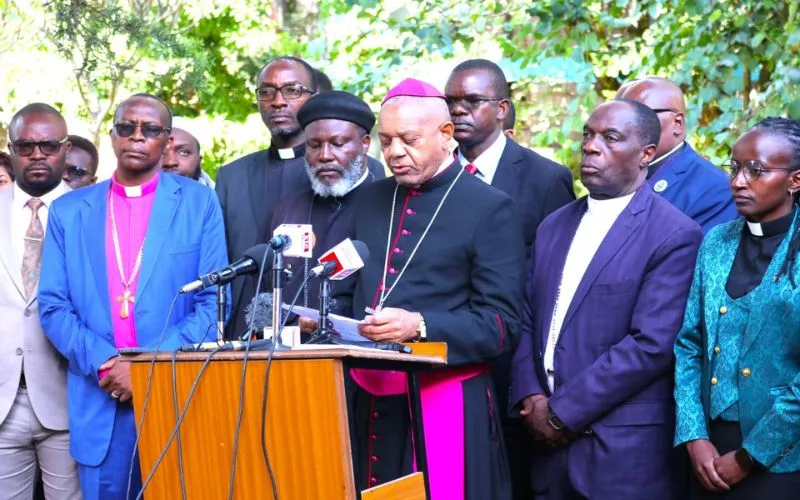The violence heightened when suspected police officers fired at demonstrators who stormed the Kenyan parliament, reportedly killing at least five of the protesters outside parliament. Bodies were also seen lying on the streets near parliament buildings, where legislators were discussing the controversial Bill.
Other injured people, who appeared to be in critical condition were brought to the premises of Holy Family Minor Basilica of Kenya’s Catholic Archdiocese of Nairobi (ADN), where paramedics had pitched a tent to treat the injured protesters.
In their June 24 statement, Kenya’s religious leaders, who echoed the chants of the protesters to have “all those punitive tax measures proposed” in the Finance Bill 2024 withdrawn and eliminated said that the Bill had “galvanized palpable citizen political momentum across the country, fronted by the youth, vehemently resisting the assertive push by the government to pass the infamous Bill, which is set to introduce punitive taxes.”
They urged the President William Samoei Ruto-led government to “come alive” to the fact that Kenyans are overburdened by the high cost of living, and added, “The government should not make life harder by introducing new taxes. On this basis, he should withdraw the Finance Bill 2024.”
The faith leaders representing Christian, Hindu, Muslim, and African Traditional religions said they were concerned about what they referred to as “the rising political temperatures and disconnect between the government and the people of Kenya following the Bill.”
“The ongoing constitutionally guaranteed public demonstrations against the punitive taxes proposed in the Finance Bill 2024 are an eye-sore because police officers are using excessive force, which has sadly led to the death of two young Kenyans,” the representatives of the faith-based leaders in Kenya said in their June 24 statement.
While condoling with the families of the two young people who had lost their lives during the previous protests, IRCK members urged the country’s Independent Policing Oversight Authority (IPOA) to “conduct speedy investigations to give the families closure.”
They also called upon the government to “consciously engage Kenyans in an honest discussion, as opposed to scare-mongering that the government will shut down for lack of money if the Finance Bill 2024 is not passed.”
Generation Z (Gen Z)-led protests against Kenya’s Finance Bill 2024 started on June 18, the day the Bill was tabled in parliament for debate, with hundreds of youths and some human rights activists taking to the streets of Nairobi to urge the legislators not to vote for the Bill during its second reading that was scheduled for June 20.
On June 20, the Gen Z-led protests took place in at least 18 Kenyan cities and townships, with protestors saying they are not satisfied with the announced amendments to the Bill that aim to raise US$2.7 billion through additional taxes and want the entire Bill rejected.








